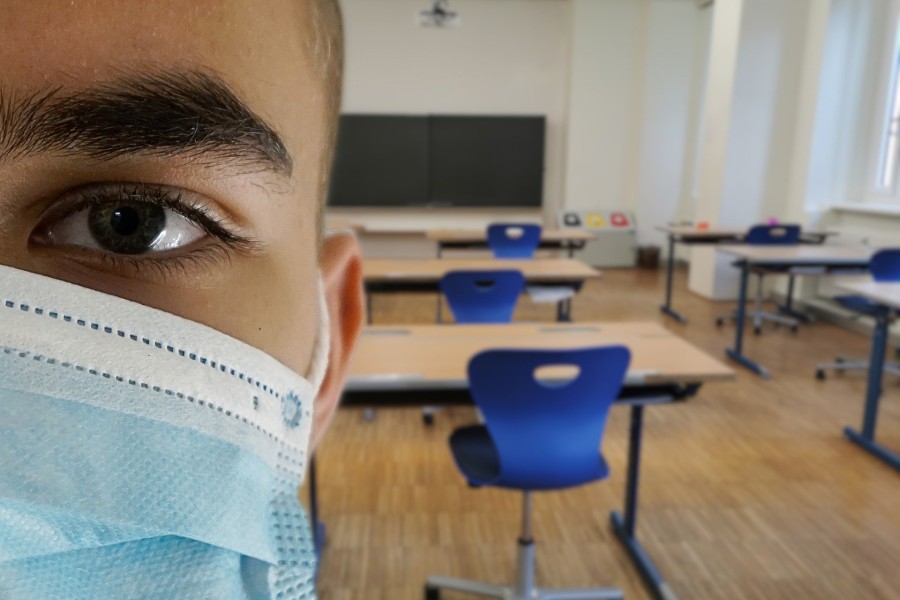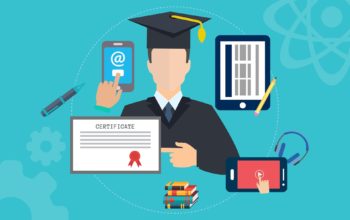K-12 to university level, the Covid pandemic is pushing teachers, online. From little kids to undergrads and higher education research scholars, learners have been attending online classes from home and connecting with their classmates and teachers via Zoom.
For the good!
It is high time education is availed online.
Before computers and internet were invented, distance learning or correspondence courses were offered by dedicated distance learning universities or distance learning departments of regular universities. These courses enabled those who missed the bus to have an opportunity to get an education at a later stage in life. Adults with various domestic or professional commitments could upgrade their education and skills.
There is a ton of research by PhD scholars and a simple Google search shows distance learning is more effective than traditional learning for various reasons.
The time has come for not just adults, but also kids to avail the benefits of distance learning.
It puts the learner in the driver’s seat.
Distance learning is student-driven rather than teacher-driven. And therefore the quality of learning is higher. I am not dwelling upon this in detail here as there is a lot of research available.
A couple of examples from my own experience.
- A decade back, when I was on a break from regular full-time work for more than a year due to medical reasons, I had pursued courses like Six Sigma, MBTI accreditation, a PG diploma in business management, etc. All via distance mode with short contact programs. And I learned a great deal that I implemented in my career thereafter – with successful results.
- My son was always unwilling to school, because from day one, he was way ahead the knowledge imparted in the school. Even when he was just two years old, I had started reading and explaining to him from illustrated books. Soon he started reading on his own and became a voracious reader. He also used to learn from TV shows, and informal chats with other knowledgeable family members. But he disliked school. He used to feel out of place, express reluctance to go to school, and stay at home at least two days a week. This was not because he was a social recluse. He was an extrovert from a young age who used to proactively chat up visitors at home, unlike usual kids who shy away. By the time he was a teenager, he was the one I used to turn to for answers to my queries on various subjects. Even today, if I am lazy, I find it easier to check with him than go to Google. Except that he dropped out of college and continues to be a highly skilled and knowledgeable person.
It’s really high time parents stopped spending a fortune on education for their children that teaches little, and rather encourage them to “learn”. Very little can be “taught”. A lot has to be “learned”. It’s no surprise that college dropouts may turn out to be successful professionals/entrepreneurs, and top companies have stopped requiring a college degree in their job postings.
Kids will have more time for enjoying childhood.
School is old school! Burdening kids with heavy school and study time is robbing them of their playtime, their childhood. Whoever invented it must have been a sadist. And those who did nothing to change it through the ages are sadist too. Hopefully coronavirus will rescue the kids of the world and help them reclaim their childhood. Fun lessons, gamification and the like are the way forward. Not full-day school, heavy assignments, and meaningless exams.
Study in any school in the world.
One should eventually be able to sit at home, and study in any school in the world, without the need for student visas or relocation. Access to the best schools will not be restricted to those living around it. Nor to just those who can afford it. At reduced costs due to economies of scale, e-learning can be accessible to even the economically challenged strata. And thereby e-learning can be more inclusive.
Today we have many e-learning apps and online universities. Even Harvard Business School has an online version. Thankfully, a lot of universities were already digital enabled to some extent by the time Covid bug happened. And with tools like Zoom and Skype, it has been fairly easy to adapt to online learning during this physical distancing phase.
But where did it begin?
According to the Wikipedia article,
In 1978, Caleb Philipps was the first teacher to offer weekly mailed lessons in short hand.
Kudos to Caleb Philipps for being 300 years ahead time!
Later in the 1840s, Sir Isaac Pitman offered correspondence lessons in short hand, again.
The first correspondence school in the United States was the Society to Encourage Studies at Home, which was founded in 1873.
Founded in 1894, Wolsey Hall, Oxford was the first distance learning college in the UK.




